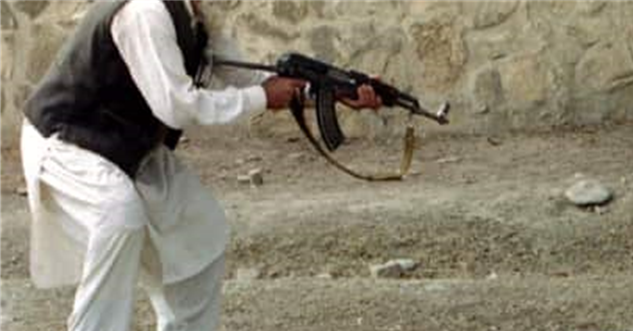RASC News Agency: Local sources and eyewitnesses in Kapisa Province have confirmed that Taliban gunmen summarily executed a young man in cold blood, his only “crime” being that he played the popular online game “PUBG.” The killing, carried out without trial or legal process, took place on Friday, August 8, in the village of Deeristan, within the jurisdiction of the provincial capital. The victim, identified as Jalal, had reportedly climbed to a hilltop near his home to access a stronger internet signal so he could continue playing the game. According to eyewitness accounts, Taliban fighters approached and demanded that he surrender his mobile phone. Fully aware of the Taliban’s self-imposed ban on the game one of many arbitrary restrictions the group uses to control personal behaviour Jalal refused. The fighters responded with immediate lethal force, firing multiple rounds into him at close range and killing him instantly.
Jalal’s brother, who witnessed the shooting, reacted in shock and desperation, attempting to defend him with a hunting rifle. The Taliban fighters shot and wounded him before taking him into custody, where his current condition and whereabouts remain unknown. This was not an isolated incident, but part of a disturbing and entrenched pattern. Since seizing power, the Taliban have carried out scores of extrajudicial executions across Afghanistan targeting civilians over minor disagreements, trivial misunderstandings, or fabricated allegations. From teenagers to middle-aged men, victims are condemned without evidence, without a hearing, and without appeal. In every case, there is no judicial oversight, no media investigation, and no local authority with the courage or the power to hold the killers to account.
The same district witnessed a similar atrocity just last year, when two young men were executed under comparable circumstances. As in countless other cases, their deaths were quietly erased from the public record. This repetition of unpunished killings has fostered a climate in which life itself is precarious, and death can be triggered by something as absurd and innocuous as playing a mobile game, speaking a single ill-chosen word, or even making the wrong eye contact. Human rights observers stress that these acts are not random bursts of brutality they are deliberate instruments of control. By normalising summary executions over everyday activities, the Taliban have cultivated a pervasive culture of fear, one in which every citizen is acutely aware that survival depends not on the protection of law, but on the arbitrary will of armed men.
Until such killings face real consequences, every Taliban bullet will continue to deliver the same unambiguous message to the people of Afghanistan: under their rule, “law” exists only as the trigger pulled by those who wield the gun, and “justice” is nothing more than the flash of its muzzle.






